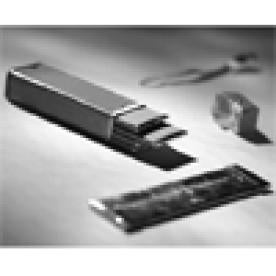Imagine you’re standing in the checkout aisle of your local grocery store, and as your eyes wander across the display of tasty treats and candy confections you spot the mark WTF. Would you be offended? If you answered yes, it may be because you associate the term “WTF” with something a bit more salacious than . . . gum.
Gum purveyor Wm. Wrigley Jr. Company, owner of the registered mark WINTERFRESH, recently filed an opposition against rival company Perfetti Van Melle Benelux BV for the proposed marks WHAT THE FRESH and WTF. The basis of Wrigley’s opposition is likelihood of confusion on the grounds that the proposed mark “WHAT THE FRESH” is too similar to the registered mark WINTERFRESH. Wrigley raises the same objection to the proposed mark “WTF,” “[t]o the extent to which consumers and others understand that “WTF” means or represents WHAT THE FRESH.”[1]
Given that the accepted meaning of the acronym “WTF” is arguably immoral or scandalous, as those terms are used in Section 2(a) of the Lanham Act, it may be surprising to some that the examining attorney permitted the mark WTF to proceed at all, since even Wrigley concedes that that term “WTF” “also is a common acronym used generally to express indignation, surprise or disbelief.”[2]
Section 2(a) of the Lanham Act, 15 U.S.C. § 1052(a), bars registration of any mark that “[c]onsists of or comprises immoral, deceptive, or scandalous matter.” The term “scandalous” is interpreted by looking to “its ordinary and common meaning”[3] and includes use of a mark which would be “shocking to the sense of propriety,” would give “offense to the conscience or moral feelings,” or would “call out condemnation.”[4] The term “scandalous” is also considered to encompass matter that is “vulgar,” defined as “lacking in taste, indelicate, morally crude.”[5]
The meaning imparted by a mark must be determined in the context of the current attitudes of the day.[6] This is particularly important to the issue of whether the term “WTF” should be deemed scandalous or not. The acronym WTF, as it is most commonly used today, is of relatively recent vintage, having entered everyday parlance as part of what is colloquially referred to as “text speak.” Acronyms like ROFL, IMHO, and OMG primarily entered the vernacular with the advent of text messaging and social media. Twenty years ago there would not have been a valid argument to oppose the registration of WTF on grounds that the mark is immoral or scandalous because the mark would not have been associated with any arguably scandalous underlying meaning. Today, however, the acronym usually attaches with a particular meaning that could be considered scandalous by some.
Of course, Perfetti does not intend for consumers to associate their WTF mark with common usage; they want people to associate WTF with their gum products. But Perfetti is also surely aware of the possible double entendre their mark will engender, and they are likely courting such association with a wink and a nod. When it comes to refusing marks as scandalous, however, “[w]hether the applicant intended the mark to be humorous, or even whether some people would actually find it to be humorous, is immaterial.”[7]
Remarkably, the author’s quick search of the United States Patent and Trademark (USPTO) database revealed 84 records for the mark WTF or WTF formative marks. One likely reason the USPTO has not refused these numerous WTF filings is that the acronym is open to multiple meanings. A search for “WTF” on acronymfinder.com reveals 93 meanings, not including the phrase that could arguably be considered scandalous. If the USPTO refused registration for the mark WTF on the grounds that the mark is scandalous, it would also have to refuse legitimate uses of the mark that are not scandalous.
Nonetheless, Wrigley should have considered raising an alternative objection to Perfetti’s application for the WTF mark on grounds that the proposed mark is scandalous and should be refused under 15 U.S.C. § 1052(a). Such an argument might be a stretch, but there is no reason not to use every argument at your disposal to reach a desired outcome.
[1] Notice of Opposition ¶ 9, Wm. Wrigley Jr. Company, No. 91219324 (Nov. 13, 2014).
[2] Id. at ¶ 10.
[3] In re Riverbank Canning Co., 95 F.2d 327, 328, 37 USPQ 268, 269 (C.C.P.A. 1938).
[4] In re McGinley, 660 F.2d 481, 485, 211 USPQ 668, 673 (C.C.P.A. 1981).
[5] In re Runsdorf, 171USPQ 443, 444 (TTAB 1971).
[6] See In re Thomas Labs., Inc. 189 USPQ 50, 52 (TTAB 1975).
[7] In re Luxuria, s.r.o., 100 USPQ2d 1146, 1149 (TTAB 2011).




 i
i

